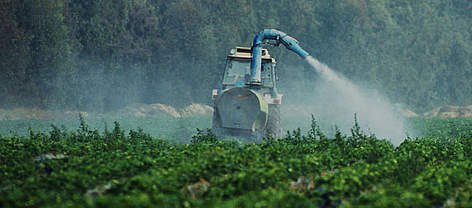 |
| Image from wwf.panda.org |
Pesticides
•Insecticides are used to kill the bugs that commonly feed on crops. Certain insecticides contain materials that can affect our health, but the most devastating impact is on wildlife. Insect-eaters such as sparrows and starlings – once considered almost pests themselves – have plummeted in numbers in the past two decades.
•Farmers use fungicides to kill fungus that grows on and destroys crops. Fungicides often come into direct contact with the area of the crop that is eaten. They can contain harmful metals such as mercury and copper.
•Herbicides kill off ‘weeds’ – and natural ecologies on field boundaries, including those insects that depend on certain wild plants
•Rodenticides are used by farmers to kill rodents such as mice and rats, which feed on crops. They are also poisonous to other mammals, including us.
Artificial hormones. Used by farmers to increase the growth of livestock. They have been shown to have harmful effects on the animals, as well as potentially to humans who consume the meat.
Antibiotics. Farm animals are now routinely fed antibiotics to prevent infections. This encourages the development of resistance to the drugs we too depend on.
By choosing organically grown food, we avoid supporting the use of these chemicals, and of course, putting them in our bodies. But more on that to come!
Sources - Harmful farm chemicals: www.ehow.co.uk/list_6816618_harmful-farm-chemicals.html#ixzz1qbtp3nF3, http://www.sustainabletable.org/263/pesticides
Information on current UK practice: http://www.ukagriculture.com/crops/spraying_of_pesticides.cfm
